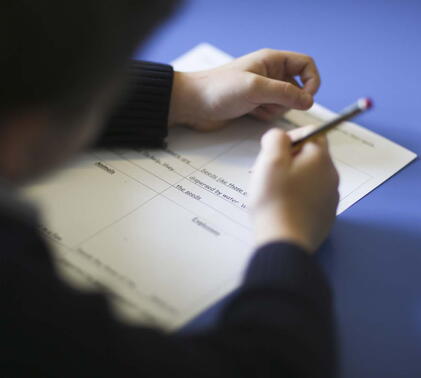
The role of the military in schools
In April I wrote the below entry about the role of the military in schools. This weekend I was invited to discuss the topic with BBC Radio Bristol. You can listen to the interview here.
Arguably the most important lessons learned at school don’t take place in a classroom, but by osmosis as a pupil grows and matures during the course of their school days. The development of character, so often referred to in relation to the business of education, is a subtle and multifaceted process that relies on a whole range of influences, both at school and from home, which shapes a young person’s view of the world, their ability to relate to those around them, their beliefs, their values. And for this to happen effectively, the educational environment is one of the key influences.
So I was concerned to learn more of the latest initiative from the Department for Education to introduce members of the military into schools to teach leadership skills to pupils through a regime that develops ‘grit, determination and resilience’. All of these are, of themselves necessary and commendable, but do they need to be delivered in combat fatigues? The images of young people parading in serried rows and wielding rifles, albeit on a range, are not ones that I would care for in my school. I don’t think for one moment that this is war-mongering on the part of the government, nor a recruitment drive for the military, but the signals it sends to impressionable teenagers need to be questioned. Many schools, including my own, have already developed strategies and initiatives that develop teamwork, build self esteem and confidence and explore critical thinking and problem solving. These visions of the 1950s have little relevance in a modern educational environment and the Government cannot use schools as a proxy for National Service. As with so much of current educational policy, it is a blunt solution to a complex problem.
History would tell us that war is straightforward and that peace is complicated. If we are introducing our pupils to the perceived benefits of a military-style regime, then we should also be providing the counter-balance of engaging with ways in which to resolve conflict by non-violent means. It is also important that we develop young people who are free and creative thinkers – not conformists that are merely trained to follow instruction – self discipline and personal responsibility for one’s actions are laudable attributes of their own along with compassion and understanding these are are the foundations of conflict resolution on which are future relies.
Our young people are hugely affected by the culture and ethos of the schools they attend and so school leaders need to think carefully about the messages, stated and implied, that are transmitted. There is much to be gained from an insight and understanding of how the armed services operate and a great deal to be admired in the sense of duty and sacrifice that military personnel make. However, our schools should provide an opportunity for informed choices to be made by pupils based on fair and balanced exposure. Peace and war are intricate concepts that need equal space for debate and discussion if we are to stand any chance of our young people making any sense of the world around them, let alone develop the wisdom to make a sustainable difference in the future.
IWK – April 2016

